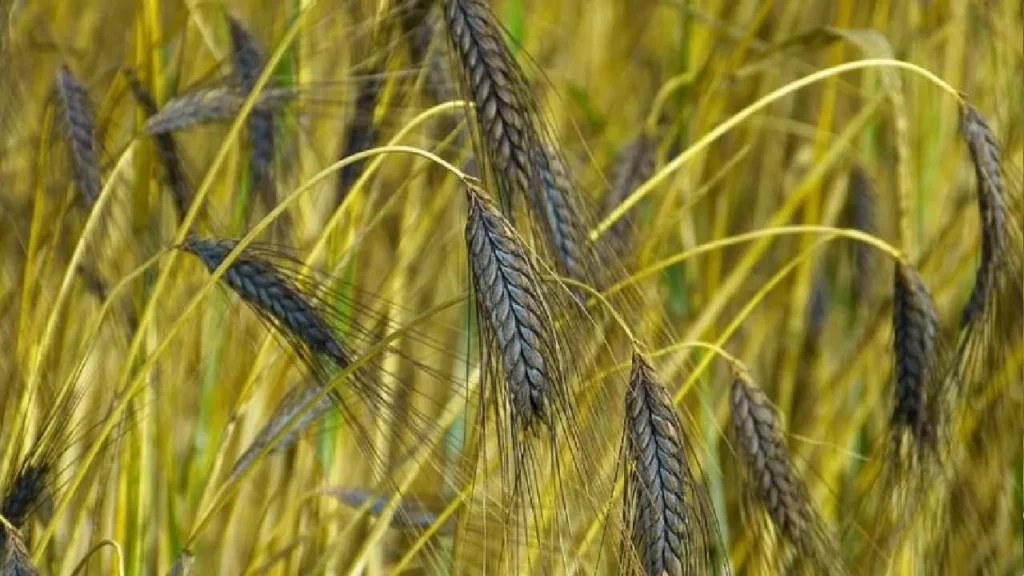
A Closer Guide to Black Wheat Farming in India

In agriculture, innovation stands as the driving force behind the transformation of traditional practices into sustainable and efficient methods. The discovery of black wheat farming in India serves as a shining example of such innovation.
Black wheat, an exceptional variety with dark purple or black kernels, is making waves in Indian agriculture, offering a promising and profitable alternative to conventional wheat varieties. This unconventional approach to farming has ignited the curiosity of researchers, farmers, and consumers alike, potentially reshaping the landscape of Indian agriculture. Especially noteworthy is how this innovation complements the efforts of Mahindra Tractor and the accessibility of Tractor Loans to boost agricultural practices further.
The Journey of Black Wheat Farming
The narrative of black wheat in India began with a group of passionate and forward-thinking researchers determined to explore new horizons in agriculture. Their fascination lay in developing a crop that not only provided essential nutrition but also catered to the modern consumer’s demand for healthier and more exotic food options.
Journey of Black Wheat Discovery in India
The journey of discovering black wheat in India represents a blend of scientific curiosity, innovation, and sustainable farming practices. It was driven by the desire to create a crop that not only benefitted Indian farmers but also enriched the consumer’s diet.
1. Scientific Exploration: Researchers from diverse agricultural and scientific institutions embarked on a mission to comprehend the unique characteristics of black wheat and its adaptability to Indian soil and climate. This phase involved extensive research, field trials, and genetic studies.
2. Sustainable Farming Practices: As the research progressed, it became evident that black wheat had the potential to be a game-changer for Indian agriculture. It required less water, displayed greater resistance to pests and diseases, and adapted well to diverse environmental conditions. These qualities made it an attractive option for sustainable farming practices.
3. Farmer Adoption: With promising results in hand, researchers collaborated with farmers to introduce black wheat into their crop rotation. Initial trials showcased its adaptability and superior yield compared to traditional wheat varieties. This encouraged more and more farmers to embrace black wheat farming.
4. Nutritional Benefits: The abundant nutritional benefits of black wheat promptly attracted health-conscious consumers. Its elevated content of antioxidants, vitamins, and minerals renders it an enticing option for those in pursuit of a more healthful dietary choice. As the popularity of black wheat products surged, the crop’s commercial viability became progressively apparent.
The Impact of Black Wheat Farming
The emergence of black wheat farming in India holds significant implications for both agriculture and public health. Let’s delve deeper into the impact of this innovative approach:
1. Sustainable Farming: Black wheat aligns with sustainable farming principles due to its reduced water requirements, natural pest resistance, and adaptability, reducing reliance on pesticides and conserving water.
2. Prosperous Farmers: Black wheat’s higher yields and resilience boost the income of Indian farmers, providing economic stability.
3. Nutritional Advantages: With elevated antioxidants and nutrients, black wheat contributes to improved health and can combat conditions like heart disease and diabetes.
4. Culinary Versatility: Black wheat’s unique qualities make it a versatile ingredient for a wide range of innovative and visually appealing dishes.
5. Global Export Potential: Beyond India, the demand for black wheat and its products presents an opportunity for international market expansion.
Challenges and Future Prospects
While black wheat farming in India holds great promise, it is not without its challenges. The path to mainstream adoption of this innovative crop faces hurdles such as:
1. Awareness and Education: A lack of awareness and information about black wheat and its benefits among both farmers and consumers is a significant challenge. Addressing this requires a concerted effort to educate and create awareness about this new crop.
2. Supply Chain Development: Establishing a robust supply chain for black wheat products is essential to meet the increasing demand. This includes processing facilities, marketing strategies, and distribution networks.
3. Government Support: To foster the black wheat industry, government and regulatory bodies should promote sustainable farming practices and aid farmers and agribusinesses involved in black wheat cultivation.
4. Research and Development: Continuous R&D is essential for refining black wheat’s genetic traits and cultivation practices, ensuring its long-term sustainability.
5. Market Expansion: As demand grows, a strong presence in retail and consumer markets is crucial. Innovative marketing and industry partnerships can facilitate this.
The Future of Black Wheat Farming
The discovery of black wheat farming in India, complemented by the support of key players like Mahindra Tractor and the accessibility of Tractor Loans, showcases the potential for agriculture to evolve with the changing times. As more farmers adopt this crop and consumers embrace its nutritional benefits, the future of black wheat farming, in collaboration with Mahindra Tractor and Tractor Loan initiatives, shines brightly.